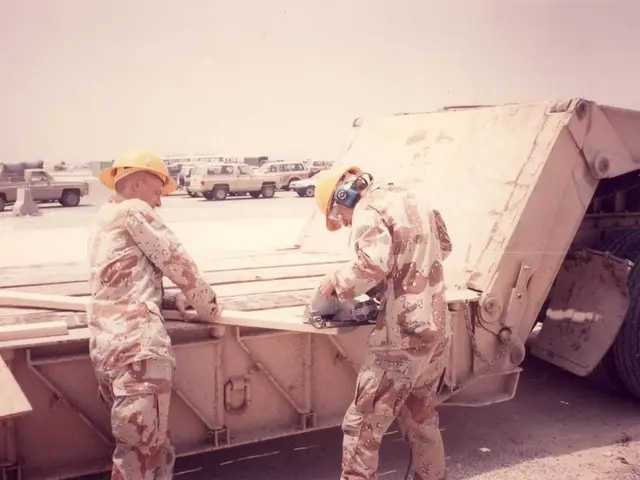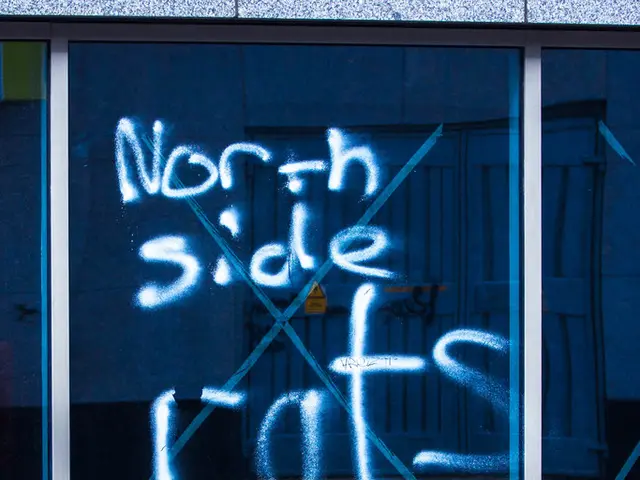U.S. rejects Hamas' reaction to truce plan in Middle East conflict as unacceptable
Update on Hamas Ceasefire Proposal Response and Developments
In the ongoing conflict between Israel and Hamas, the Palestinian Islamic movement has provided a response to the United States' ceasefire proposal in Gaza. Their proposal, conveyed on May 31st, includes the release of ten living Israeli hostages and the remains of 18 others in return for an agreed number of Palestinian prisoners currently held by Israel. The aim, as Hamas states, is to achieve a permanent ceasefire, a full withdrawal from Gaza, and ensure aid delivery to the area's population.
The American envoy, Steve Witkoff, who initiated the U.S. proposal, deemed Hamas' response as "completely unacceptable," as the American plan envisages the release of 10 living hostages and the return of 18 bodies in two phases, in exchange for a 60-day ceasefire in Gaza. Israel has yet to comment on Hamas' response. Continue to follow our live coverage for updates.
Turning to recent events, the Israeli army has confirmed the killing of Mohammed Sinwar, previously presented as the Hamas chief in the Palestinian enclave, during a strike on May 13th in Khan Younes. This attack, targeting an infrastructure located under the European hospital, follows Israeli Prime Minister Benjamin Netanyahu's announcement of Sinwar's death on Wednesday.
Meanwhile, several rockets were fired from Gaza on Saturday evening and landed in uninhabited areas, according to the Israeli army. The sirens were activated at 7:01 PM (6:01 PM in France) in Ein HaShlosha and Nirim, triggering the identification of several rockets crossing Israel from Gaza.
A man was killed on Saturday in a strike by an Israeli drone in Deir al-Zahrani, around 20 kilometers from the Israeli border, despite the ongoing ceasefire between Israel and Hezbollah. The Israeli army claimed to have killed a commander of Hezbollah's rocket system.
Amid the ongoing turmoil, a group of armed individuals stormed the warehouses of a field hospital in Deir el-Balah in the Gaza Strip and looted large quantities of medical equipment, supplies, medicines, and nutritional supplements intended for children suffering from malnutrition, according to the spokesperson for the UN Secretary-General Stephane Dujarric.
Lastly, an Arab delegation, scheduled to visit the West Bank on Sunday, denounced Israel's decision to ban their visit to Ramallah and the meeting with Palestinian President Mahmoud Abbas. The visiting committee, headed by the Saudi Minister of Foreign Affairs, included representatives from Jordan, Bahrain, Egypt, and the Secretary-General of the Arab League. Israel's control over the West Bank's borders and airspace, occupied since 1967, necessitates its approval for foreign diplomats to enter the region.
As negotiations continue between the two sides, challenges arise regarding U.S. guarantees, the timing of hostage releases, and the delivery of aid, making a mutually acceptable agreement uncertain but not impossible as the situation unfolds.
- The response from Hamas to the US ceasefire proposal in Gaza, deemed "unacceptable" by the American envoy, includes a trade for hostages and remains, setting terms for a permanent ceasefire, a full withdrawal from Gaza, and aid delivery.
- The ongoing conflict, marked by recent events such as the killing of Mohammed Sinwar, rocket attacks from Gaza, and strikes by Israeli drones in Palestine, is influencing the politics of war-and-conflicts and general news coverage, as negotiations continue towards a resolution.






